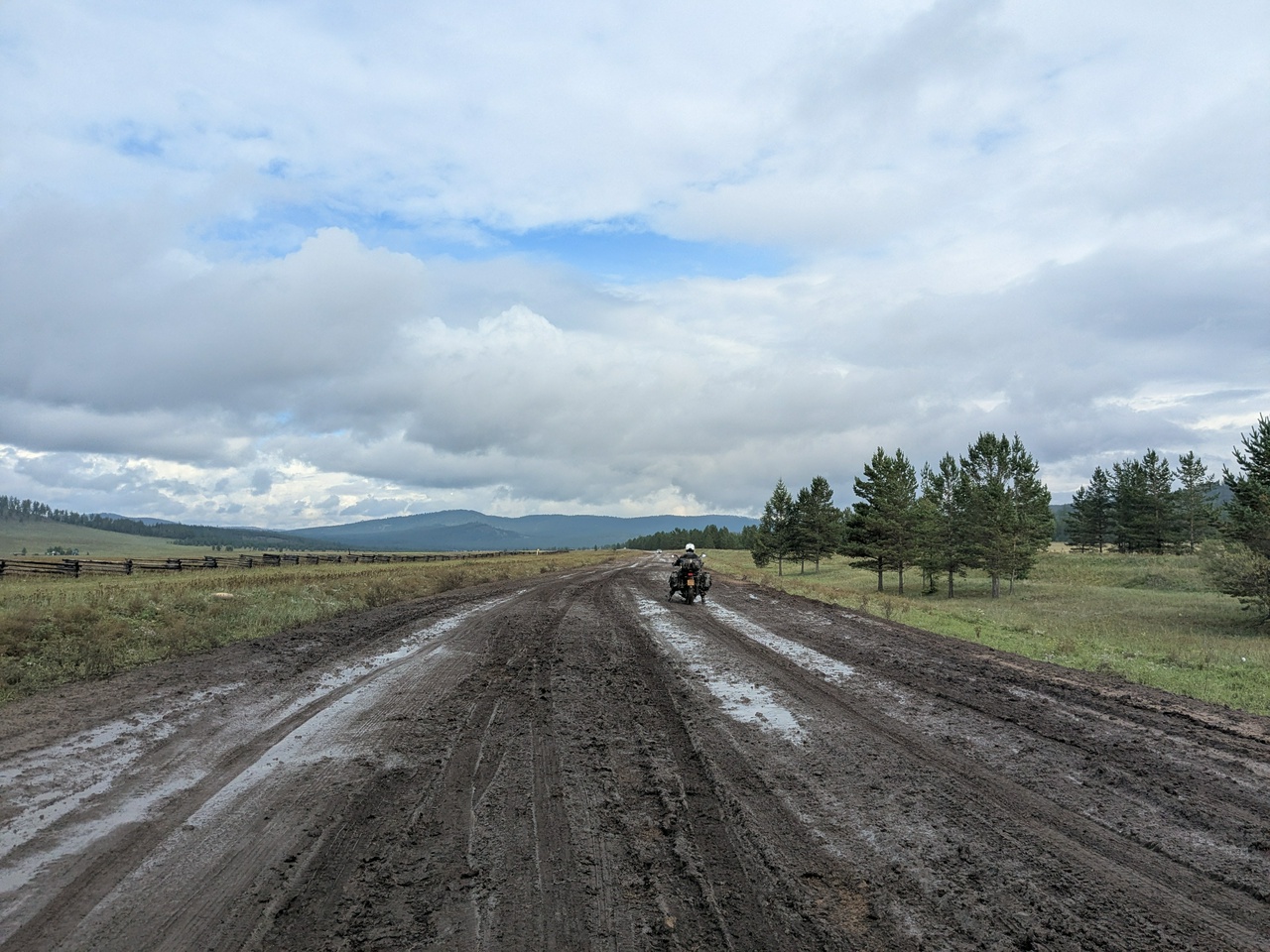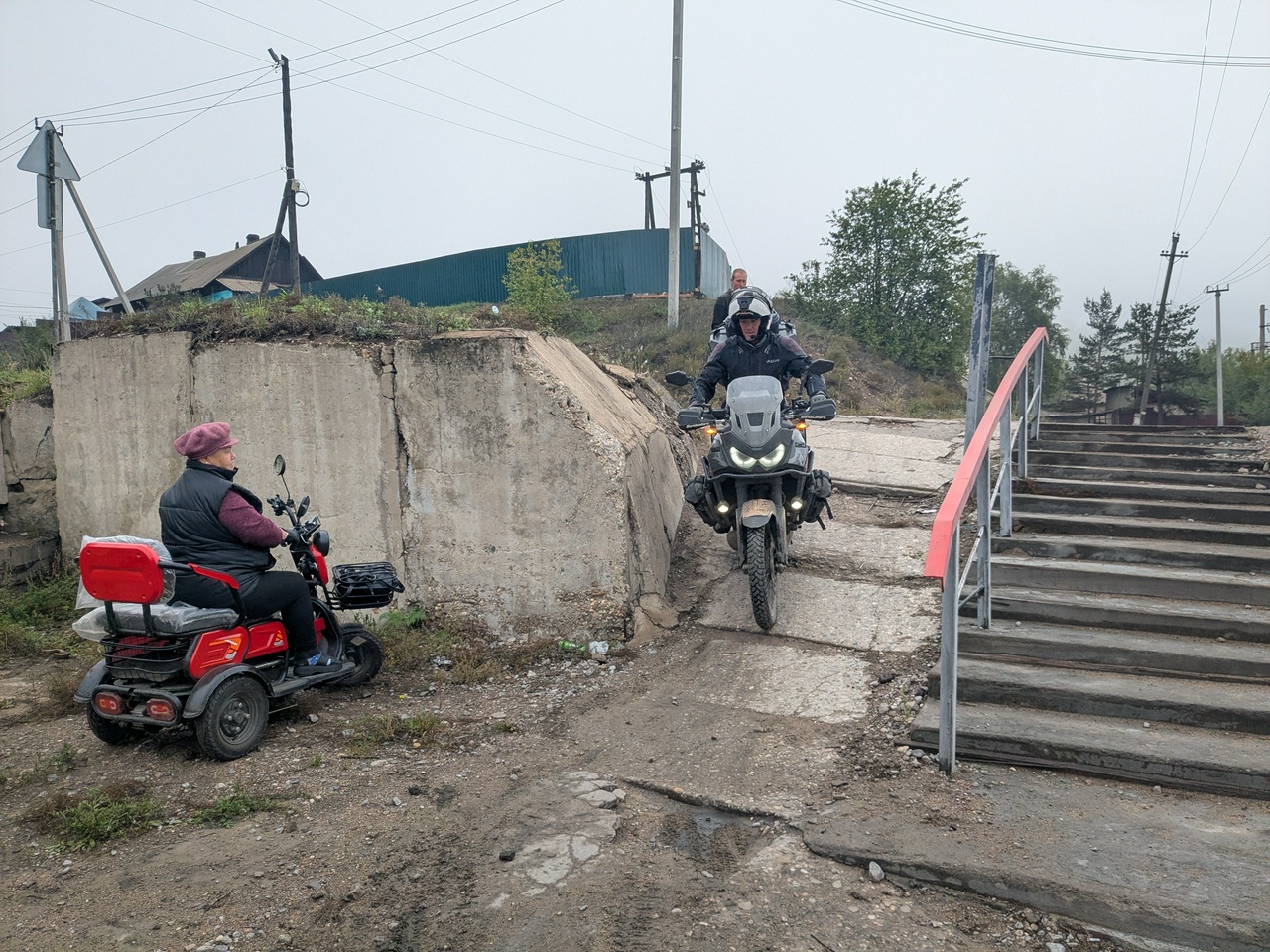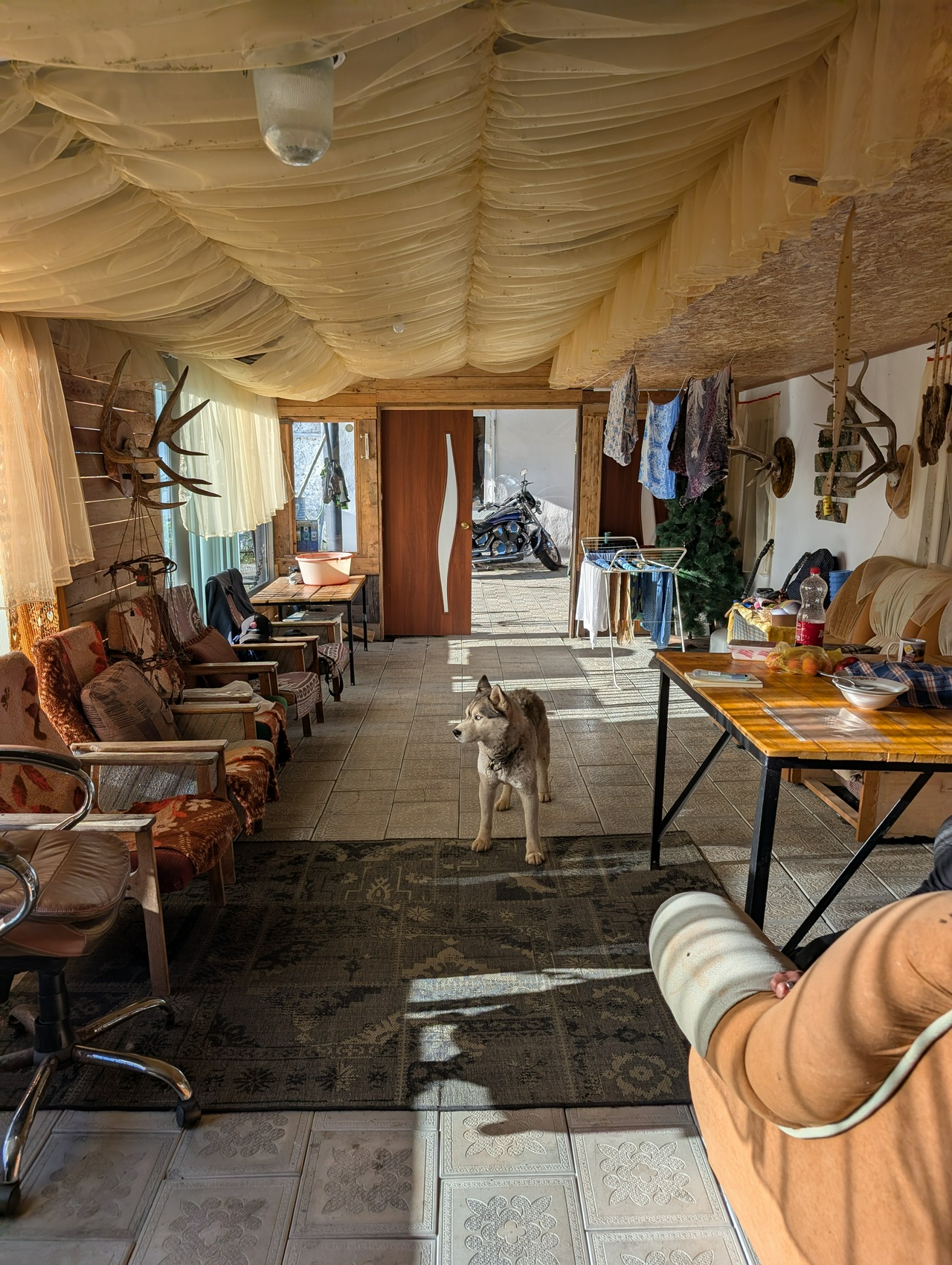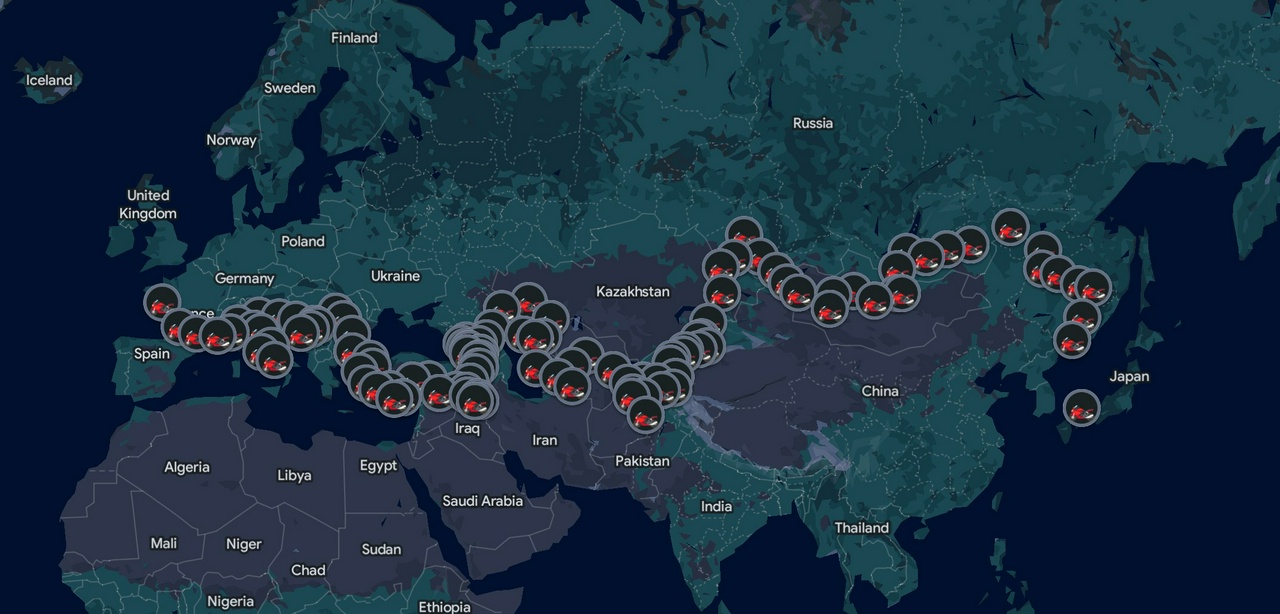🇷🇺Russia Part 3 – saved by the biker
18 days and 4,119km (Total: 158 days and 32,144km)
Our third time entering Russia. This time into Eastern Siberia and only three thousand geodesic kilometers from our final destination. The ferry to Japan was booked and we had to reach Vladivostok a week early for customs clearance.
Ahead: eleven days, one long road, and no expectations.
The last two Russian border crossings had been intense. Phones confiscated and scanned. Interviews about our reasons for visiting. So we came prepared, arriving at the crack of dawn with a flask of hot water, a 3-in-1 Nescafé sachet, and some biscuits.
Instead, it was almost pleasant. Customs staff filmed us declaring no drugs, drones, or guns, before a kind woman helped us through the long motorcycle import forms which were entirely in Russian.
A short and sweet exchange — “Welcome to Russia” — “Spasiba” — and we were on our way.
Within hours my puny geography knowledge multiplied. We soon discovered that the big mass of water next to us was Lake Baikal — the oldest and deepest lake in the world. And the area we were riding through was the Republic of Buryatia — a federal subject of Russia and home to the indigenous Mongolic Buryats. If it weren’t for the Russian number plates and flags, we’d have thought we were still in Mongolia.
We rode past Buddhist temples and into the region’s capital, Ulan Ude. Not a city that could compete in a beauty contest against the European cities we were travelling through on the other side of summer, but perfectly functional for our simple desires of a clean bed and a working stove. We were probably one of the few foreign tourists there that night, and almost certainly the only ones that cooked a Portuguese ensopado with Chinese Tsingtao beers on the side.
We set off early the next day and headed east. Rain was abundant. Paved roads weren’t. It was a tough ride over one hundred kilometres through greasy mud, sludge, and pot holes filled with water of unknown depth. If Russia was tapping our helmet intercoms (not improbable) they would have heard my cursing within the fine lines between tears and laughter. Becs, as always, was keeping her cool and me distracted with pub/bike quiz questions like “How many red cars are there in China?”

We eventually found pavement again and finished the day on a high. I doubt the locals had ever seen a man so ecstatic, dripping wet and splattered in mud, standing before a backdrop of desolate Soviet apartment blocks.
We left early the next day. Or tried to. A railway barrier blocked our exit from town. A uniformed man gestured “It’s going to be a while!” and pointed to the pedestrian underpass. I was sceptical — until an old woman on a mobility scooter made it look easy. Pride prevailed. we stripped the bike of the panniers and Becs, and I made it through.

The rain continued to hammer it down. Finding accomodation was difficult, with camping off the cards and many hotels not accepting “foreigners”. Prices were between €30 and €40 per night — more expensive than we had gotten used to — and we already knew that attempts to negotiate abruptly end with “нет” (“no”).
Quality was... variable. Dirty rooms, mattresses that must have been used thousands of times, and sinks that fell over when you lent on them to brush your teeth. But, our bar for good continued to plummet and it only took a few days before I found myself saying “Becs Becs, look... the room has a window”.
We kept going east, riding alongside the Trans-Siberian Railway, which crosses Russia in seven days. With little else to stop for, we made good distances. After a week, we detoured to Blagoveshchensk and spent the evening walking the Amur River, captivated by the surreal view of China just across the water. Our hostel was full of men — likely truckers headed over that river in the morning.
The weather was improving but finding accommodation was getting tougher. I found a biker refuge that was close by and sent a message explaining “We’re a couple from the UK, riding to Japan on an Africa Twin, looking for a place to stay.” The reply: “Good evening, yes, of course, come!”
That was all we needed. We rolled through the gates late afternoon and were greeted by two guys fixing their van. They were from Yakutsk, the coldest city on Earth, visiting Vladivostok for their summer holiday. The host was out, so we waited in the garden — a Harley in one corner, a barking dog chained in the other.
Maxim soon arrived. He was proper biker. Cargo trousers, oversized hoodie, military boots, sunglasses. He was the first person in Russia that greeted Becs with a hug and we instantly felt that reassuring connection that runs through the biker community wherever you are in the world.
He showed us around his home and where we'd be staying. It was a perfect refuge for the night: double bed (pull out sofa), reasonably clean bathroom (just some cat poo on the floor), a fully equipped kitchen (an old pair of men's boxers as oven gloves), and some guns hanging in the garage (not that we needed them). Another more friendly dog showed his face, along with a fat cat and a pet hedgehog.

After a couple of beers, we walked into the tiny town for dinner. When we finished, Maxim picked us up and gave us a proud tour of his local town… the only highlights being a massive hydraulic damn and a tiny pool of dirty water with some fishes. We acted amazed. We all had tea and biscuits when we got home.
We woke to heavy metal music on full blast and Maxim fixing a quad bike. He never asked for money but we left some Rubles, wrote in his guestbook, and said goodbye. Vladivostok was only days away now.
The cultural jigsaw of Russia continued to amaze us and the next day took us into Birobidzhan, the capital of the Jewish Autonomous Oblast Region. It is one of two officially Jewish jurisdictions in the world, the other being Israel. Yiddish is still an official language. The following night we reached Khabarovsk, the largest city and previous capital of the Far Eastern Federal District. The sun was out and the streets buzzing. At a quick glance you'd think you're in San Francisco.
We then turned south and had a straight 800km to get to Vladivostok, a city that was closed to foreigners until 1992 and made the region’s capital in 2018.
After two weeks of rain, cultural fascinations, and more human generosity, we arrived at the port. Back by the sea for the first time since Turkey. We swam, explored supermarkets, and savoured our final Russian meals. Locals helped us book taxis and print the documents we’d need for our last border crossing.

Next stop: forty eight hours on a boat.